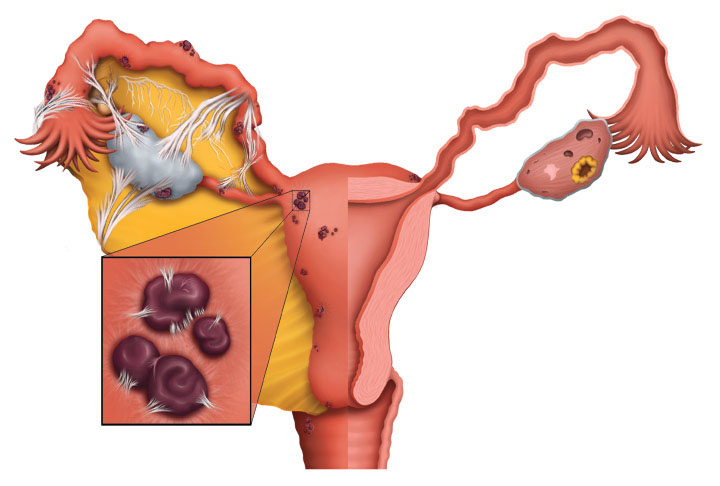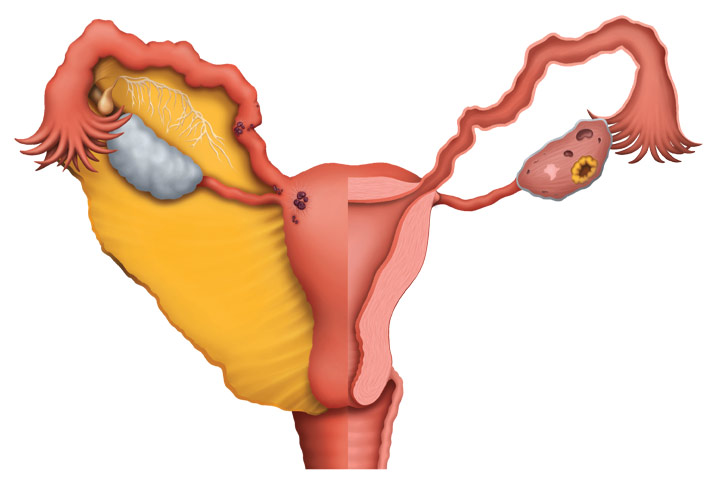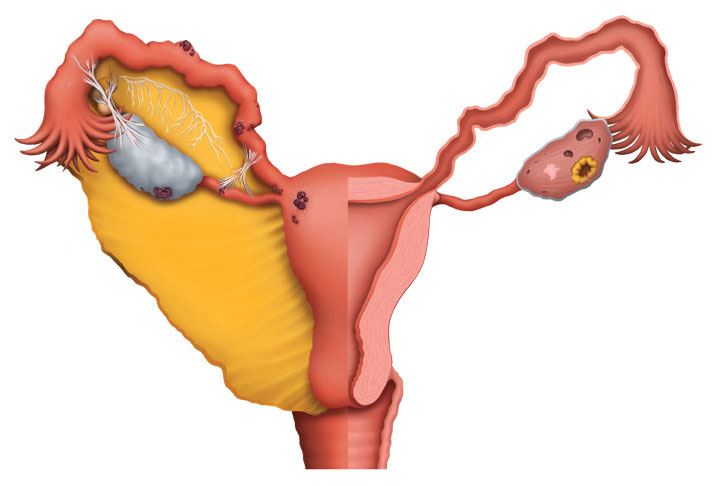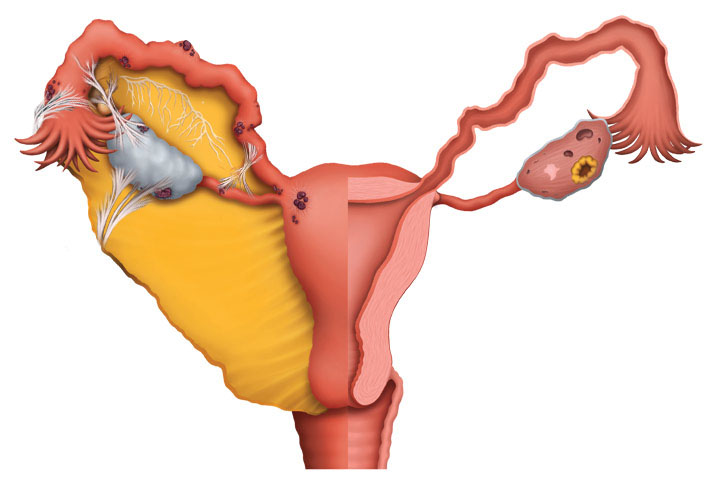Different Stages of Endometriosis
If you suspect that you may have endometriosis, it is important that you consult with your doctor and receive an accurate diagnosis. Endometriosis is commonly diagnosed via a pelvic exam or a surgical procedure called laparoscopy. As part of the diagnosis, the doctor will typically determine which stage of endo a woman has. Identifying the stage helps guide the selection of the treatment most appropriate for her particular case.
The four stages of endometriosis are evaluated using the following criteria:
- Endometrial implants
- Location

- Extent
- Depth
- Location
- Endometriomas
- Presence
- Size
- Adhesions
- Severity
Stage 1 Endometriosis (Minimal)
The first stage of endometriosis is characterized by superficial implants that are sometimes mistaken for cysts or ovarian cancer. They resemble small, flat patches or flecks on the pelvic surface. The presence of these implants causes irritation and inflammation in surrounding tissues, leading to the formation of adhesions. Adhesions are bands of internal scar tissue that can bind tissues and organs that are normally mobile, causing pain and dysfunction.
Stage 2 Endometriosis (Mild)
Most women are diagnosed with minimal or mild endometriosis. The attributes of the first stage endo are present in the second stage as well, but more aggressively. Black spots appear over the fibrous adhesions which have grown in intensity, likely causing irritation during ovulation and/or pelvic pain. During this stage, lesions also appear in the recto-uterine pouch — the area between the uterus and rectum.
Stage 3 Endometriosis (Moderate)
Endometriomas, sometimes called “chocolate cysts,” begin to appear in the third stage of endometriosis. Chocolate cysts get their name because, after time, the blood inside of the cyst turns dark red and brown. If a cyst ruptures, it can cause extreme abdominal pain and inflammation in the pelvic region. Inflammation and infection, in turn, cause more adhesions.
As endometriomas increase in size and number, so do the adhesions that form in response.
Stage 4 Endometriosis (Severe)
This is the final stage of endometriosis, associated with a large number of cysts and severe adhesions. Endometriomas can grow very large — even as big as a grapefruit — during this stage. Endometriomas over the size of 2 cm will likely need to be surgically removed.

Since many of the cysts at this stage are on the back wall of the uterus and the rectum, women with stage 4 endo may experience digestive issues such as including painful bowel movements, constipation, nausea/vomiting, and abdominal pain. In addition, infertility is likely with stage 4 endo.
Do I Have Endometriosis?
The following are some common symptoms of endometriosis:
|
|
Symptoms of endometriosis do not always correlate with the stage. For example, a woman with stage 2 endo may experience more pain than a woman with stage 4.
Discover how Clear Passage Physical Therapy’s non-surgical, drug-free approach can potentially alleviate your endometriosis pain and improve fertility – schedule your Free Consult or Request Info today to explore a personalized treatment plan. To learn more visit our Apply to Therapy page.
References:





